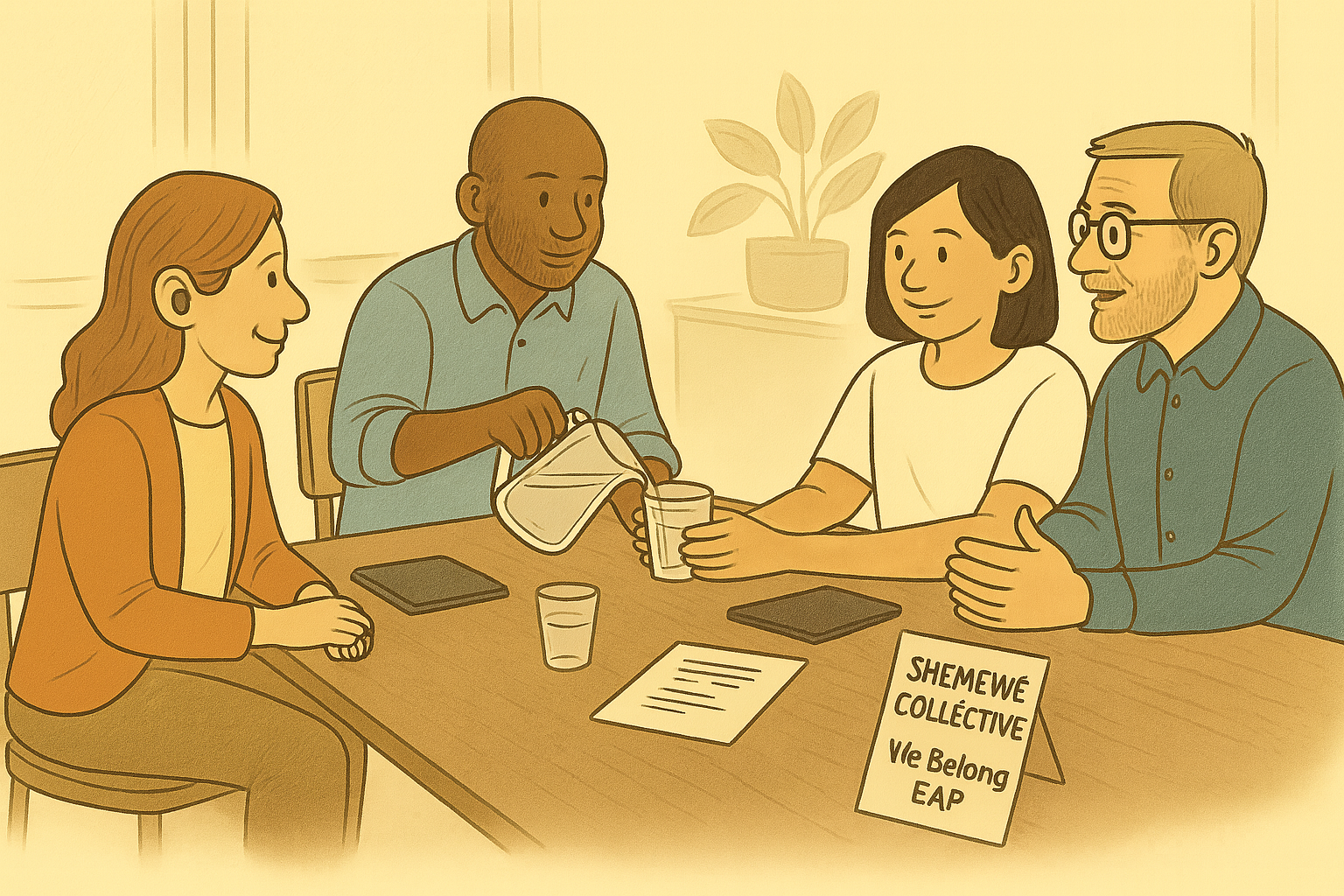What Makes an EAP Truly Inclusive for SMEs?
Written by Toni Hanna
4 min read

Restoring EAP to Its True Purpose
If you’re investing in an Employee Assistance Program (EAP), you want to know it’s reaching your people. Too often, EAPs sit on the shelf, promoted once then forgotten. Staff feel hesitant to call a faceless hotline, and employers end up paying for a service that no one uses. A truly inclusive EAP builds relationships first, making support accessible, familiar, and genuinely effective for SMEs.
Culture of Care, Not Crisis
When workplaces only respond once stress reaches breaking point, business owners end up firefighting staff issues instead of focusing on growth. Absenteeism, turnover, and low morale become constant drains on time and energy. An inclusive EAP changes that pattern.
By building relationships first, and making access simple, employees use support earlier. This prevents problems from escalating and creates a healthier culture where wellbeing is part of everyday life, not just a response to crisis.
For SME owners, this means less time spent managing problems and more time to focus on building your business. When staff are supported and morale is high, you can trust your team to carry more of the load, freeing you to step back a little and focus on what matters most.
Beyond Tick-Box Wellbeing
Many SMEs invest in EAPs with good intentions, only to find the service isn’t being used. The reality is, most employees won’t reach out to someone they’ve never met. An inclusive EAP goes beyond the tick-box approach. It’s not about saying, 'We have an EAP,' but ensuring every dollar invested is money well spent, connecting your people with real support they will actually use.
Relationships Before Services
Trust and safety are the foundations of accessibility. That’s why We Belong EAP doesn’t begin with a phone number. We begin by creating touchpoints that build familiarity and ease, so when support is needed, the barrier to access is already lowered. Employees know us, and we begin to know them. This familiarity is what makes saying yes to help far easier. Talk to us about how we can design those pathways of accessibility for your company.
Accessibility for SMEs
For SMEs without HR or wellbeing managers, running an EAP can feel overwhelming. We Belong EAP is designed to take that load off. We create a package that combines practical learning with one-on-one support, so you can be confident your people are cared for. Over the course of a year, staff build rapport with practitioners, use their sessions, and see the benefits in real time. This ensures you’re not paying for unused services but investing in genuine wellbeing. It also helps you retain good staff and reduce costly turnover, strengthening both your team and your business.
The Spirit of EAP
EAP in Australia grew as part of a wider shift encouraged by government and workplace safety frameworks. It was designed to help employers strengthen workplace culture and support the psychosocial wellbeing of their teams.
But like many good ideas, once absorbed into the dominant culture, it risks becoming another box to tick. When EAP is treated this way, it loses its purpose: to provide real, human support for staff.
The We Belong EAP Difference
Our approach with We Belong EAP is to return to that original spirit. It’s about relationship, accessibility, and inclusivity. This is the same message we have carried through our other articles on cultural safety, men’s wellbeing, and LGBTIQAP+ inclusion.
For SMEs, it means offering more than compliance, it means building a culture of care that people feel every day.
If you’re ready to move beyond a tick-box EAP and invest in something your people will actually use, let’s talk. At Shemewé, we offer We Belong EAP, a values-driven, relational, and truly inclusive service designed for SMEs. Because your investment in staff wellbeing should never be dead money, it should build the culture of care your business deserves.